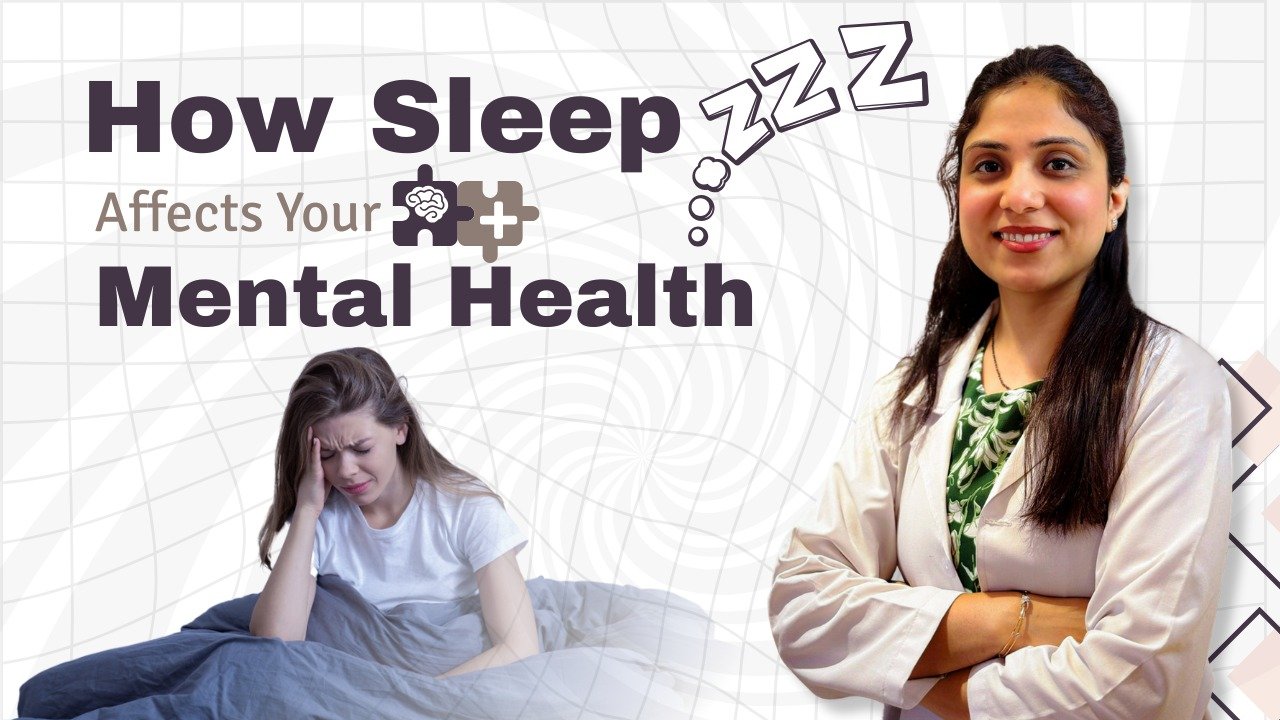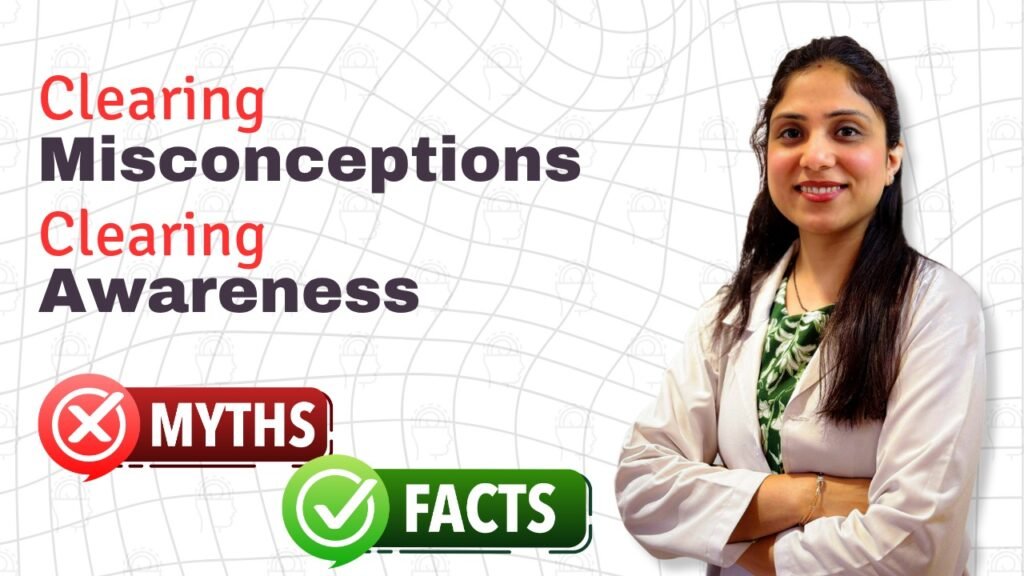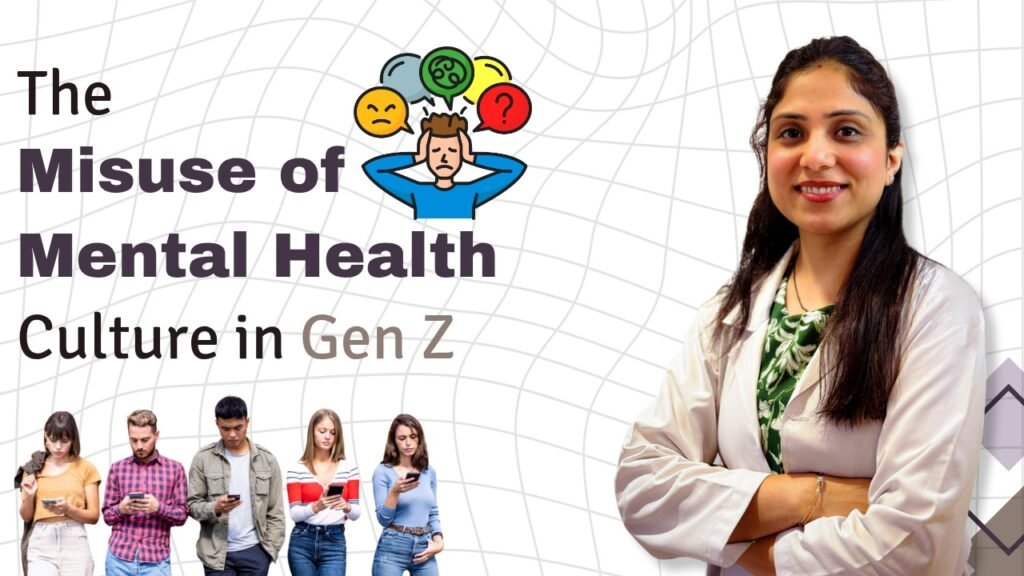
Written by Dr. Sakshi (MBBS, MD Psychiatry)
Sleep is important for every person. It helps the body rest and gives the brain time to heal. When sleep is not proper, the brain feels tired, and emotions become hard to manage. That is why it is important to learn how sleep affects the brain and mental health.
In this blog, it will be explained how sleep affects the mind. You will also learn what makes sleep better or worse, and how to take care of your sleep and mental health together.
Why Sleep Matters
It has been shown that sleep affects how people feel, think, and behave. When sleep is poor, feelings of sadness, worry, or anger can increase. Good sleep helps people feel calm and happy.
Sleep helps the brain store new things. It also lets the body heal from stress. Without rest, the mind cannot work well. That is why sleep affects mood, memory, and focus.
How Sleep Affects Mental Health
It has been shown that sleep affects how people feel, think, and behave. When sleep is poor, feelings of sadness, worry, or anger can increase. Good sleep helps people feel calm and happy.
Sleep helps the brain store new things. It also lets the body heal from stress. Without rest, the mind cannot work well. That is why sleep affects mood, memory, and focus.
How Sleep Affects Mental Health
When people do not sleep well, it can lead to mental health problems. Depression, anxiety, and stress are seen more in people who sleep less. Children and teenagers also feel more angry or upset when sleep is low.
Many doctors say that sleep affects the success of mental health treatment. That is why both sleep and feelings must be looked after at the same time.
People who sleep well often think clearly, feel happier, and deal with stress in better ways. This is how sleep affects mental strength.
What Affects Sleep?
Many things can make sleep better or worse. Some of them are:
- Stress or anxiety
- Loud or bright rooms
- Eating late at night
- Mobile or screen use before bed
- Using strong things like nicotine
It is important to know how small things can disturb rest. That’s because sleep affects both body and mind.
Does Nicotine Affect Sleep?
Yes. People who use nicotine often sleep less and wake up many times during the night. So, if you wonder, does nicotine affect sleep? – the answer is yes. It can also make the brain stay alert when it should rest.
Does Creatine Affect Sleep?
Some people ask, does creatine affect sleep? – and it may. While creatine helps with energy, it may make the brain too active at bedtime. So, it should be taken only as needed and at the right time of day.
Does Eating Before Bed Affect Sleep?
Late-night meals can make the stomach work more. This can keep the brain awake. So if you ask, does eating before bed affect sleep? – yes, it can cause poor rest and even weird dreams.
Does Sleeping with Socks Affect the Brain?
Warm feet help the body relax. Many ask, does sleeping with socks affect the brain? – and the answer is yes. Socks may help the brain fall asleep faster by keeping the body warm. So, does sleeping with socks affect the brain? – it can, in a good way!
Book an appointment with me and let’s understand your journey—together.
📍 Dr. Sakshi
MBBS, MD (Psychiatry)
By sleeping better, reducing stress, and not sleeping on your back. If it continues, speak to a psychiatrist or sleep expert.
It happens when the brain wakes up before the body does. Stress, poor sleep, and irregular sleep habits can be common triggers.
This scary feeling is just your brain dreaming while awake. Staying calm and fixing your sleep habits can prevent it.


